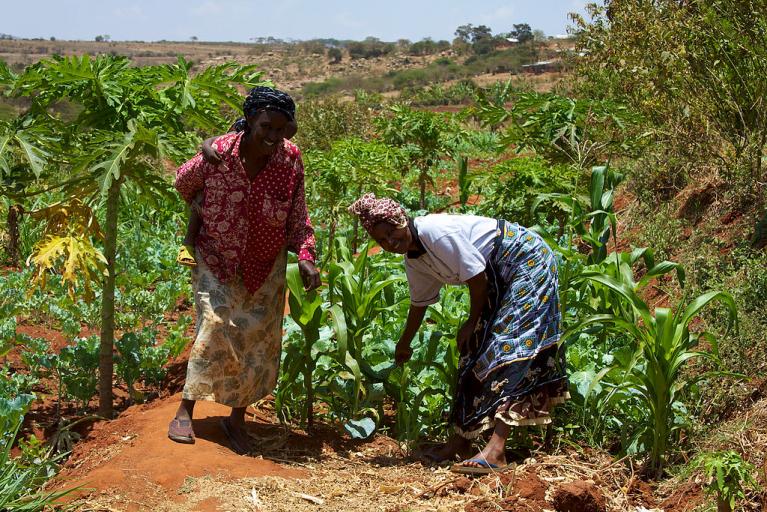Latest Seed Laws & Policies Resources
5 December 2023
Draft Plant Breeders’ Rights and Plant Improvement Act Regulations
Further comments submitted by the African Centre for Biodiversity (ACB). In November, the Department of Agriculture, Land Reform and Rural Development (DALRRD) hosted stakeholder consultations in Pretoria and Cape Town on the regulations of the Plant Breeders’ Rights (PBR) and Plant Improvement (PI) Acts. The ACB was quick to accept the invitation to attend both […]
READ30 August 2022
Regulations of Plant Improvement Act and Plant Breeders’ Rights Act, 2018
Please find here ACB’s comments to the Department of Agriculture, Land Reform and Rural Development regarding the recently published Regulations to implement the Plant Improvement Act 2018, and the Plant Breeders’ Rights Act, 2018. The Department has taken important steps in these Regulations to ensure that certain groups of farmers are exempt from these corporate […]
READ30 July 2021
Seed is power – Reclaiming African Seed Sovereignty: Africans speak out against corporate hegemony over seed and food systems
In rejection of the United Nations Food Systems Summit (UNFSS), which held its pre-summit this week, civil society, farmers groups and social movements came together for a global counter-mobilisation that spanned four days, with 15 online sessions. One of the webinars, titled Seed is power: Reclaiming African Seed Sovereignty, featured a presentation: Africans speak out […]
READ17 May 2021
Harmonisation of seed laws in Africa
Regional and continental integration under the auspices of the African Continental Seed Harmonisation (ACSH) initiative and the African Continental Free Trade Area (ACfTA) The African Union Commission (AUC)’s African Seed and Biotechnology Programme is undertaking a process developing Continental Guidelines for the Harmonisation of Seed Regulatory Frameworks in Africa. The ACB was able to access […]
READ30 October 2018
Reflections on ITPGRFA, UPOV 1991 and South Africa
Recently the Department of Agriculture, Forestry and Fisheries (DAFF) held national consultations on whether South Africa should accede to two international agreements related to seed: The International Treaty on Plant Genetic Resources for Food and Agriculture (ITPGRFA, or the Treaty) and the International Convention on the Protection of New Varieties of Plants (UPOV) 1991. The […]
READ15 December 2017
Harmonised corporate seed laws in Africa: Where does this leave smallholder farmers?
The expansion of the corporate seed market, embedded in the green revolution agenda in sub-Saharan Africa is progressing very fast. This expansion is going hand in hand with regional policies and regulations – in a process also known as seed harmonisation – that will enable facilitate trade across national borders. This has been the case […]
READ14 July 2017
Call to action: make your submissions to oppose corporate seed Bills and save our seeds
The Plant Breeders’ Rights and Plant Improvement Bills restrict the saving, trading, exchanging, and sale of seed. This can have massive ramifications on seed and food sovereignty, agricultural biodiversity, access to diverse seed, and increasing the disparities and inequalities in South African agriculture, food and nutrition. We urgently need to protect and preserve our food […]
READ3 July 2017
Resistance is fertile! Farmers rise up against South Africa’s corporate seed laws
Calls to decolonise our seed system at Gauteng public hearings on the Plant Improvement and Plant Breeders’ Rights Bills. Are there alternative systems that put farmers at the centre, do not reduce genetic and agricultural diversity, and support agroecology, seed and food sovereignty and resilience? South African smallholder farmers, consumers, academics and civil society at […]
READ3 July 2017
Lobbying papers on South Africa’s Plant Improvement Bill and Plant Breeders’ Rights Bill
Commentary on South Africa’s Plant Improvement Bill and Plant Breeders’ Rights Bill. Read here.
READ5 May 2017
Impacts of Seed Laws on farmer managed seed systems
Seed laws often overlook the vital role of farmer-managed seed systems (FMSS), sidelining smallholder farmers and their locally adapted varieties, which don’t meet formal criteria. Learn more about these and other topics in the factsheets produced by the ACB for smallholder farmers in Africa. The materials are available in several languages and cover a range […]
READ5 May 2017
What are the DUS criteria?
DUS stands for Distinct, Uniform and Stable. The DUS criteria aims to supply industrial-scale commercial farming systems while smallholder farmers plant seed that is not distinct, uniform or stable. This third factsheet gives more information on this system and the potential impact on smallholder farmers. Learn more about these and other topics in the factsheets produced by the […]
READ5 May 2017
What is quality declared seed?
The quality declared seed (QDS) system is part of the formal seed system and also controls seed quality and purity. The QDS has several benefits, including the system being a good employment opportunity for farmers who produce improved seed. It does, however have drawbacks such as the limited access to basic seed for seed multiplication. […]
READ










